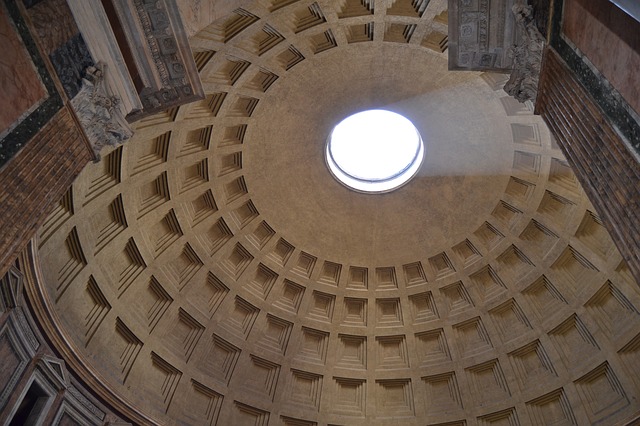Aesthetics and architecture
| Line 1: | Line 1: | ||
| − | + | [[File:Pantheon1.jpg]] | |
| − | + | Aesthetics is a branch of philosophic study that relates to the nature and expression of beauty and taste; in other words, the appearances of things. It is derived from the Greek word ‘aisthetikos’, which refers to sensory perception and understanding or sensuous knowledge. As aesthetics concerns an appreciation of beauty, it is influenced by the subjective taste of an individual. | |
| − | + | Like painting and sculpture, architecture can be considered a visual art to which the philosophy of aesthetics can be applied. However, this application of aesthetics to buildings and architecture is complicated by the physical requirements of the brief, budget, structure, regulations, climate, weather and so on, meaning that building design is driven by form and function as well as aesthetics. | |
| − | When architects design buildings, they use a creative process to | + | When architects design buildings, they use a creative process to rationalise these different requirements to create a unified whole. For more information see: Concept architectural design. |
| + | Aesthetic considerations in architecture might include: | ||
| + | |||
| + | * Line. | ||
| + | * Shape. | ||
| + | * Size. | ||
| + | * Texture. | ||
| + | * Colour. | ||
* Balance. | * Balance. | ||
* Unity. | * Unity. | ||
| Line 14: | Line 21: | ||
* Space. | * Space. | ||
* Alignment. | * Alignment. | ||
| + | * Culture. | ||
| + | * Context. | ||
For more information, see Design principles. | For more information, see Design principles. | ||
Revision as of 13:54, 29 May 2018
Aesthetics is a branch of philosophic study that relates to the nature and expression of beauty and taste; in other words, the appearances of things. It is derived from the Greek word ‘aisthetikos’, which refers to sensory perception and understanding or sensuous knowledge. As aesthetics concerns an appreciation of beauty, it is influenced by the subjective taste of an individual.
Like painting and sculpture, architecture can be considered a visual art to which the philosophy of aesthetics can be applied. However, this application of aesthetics to buildings and architecture is complicated by the physical requirements of the brief, budget, structure, regulations, climate, weather and so on, meaning that building design is driven by form and function as well as aesthetics.
When architects design buildings, they use a creative process to rationalise these different requirements to create a unified whole. For more information see: Concept architectural design.
Aesthetic considerations in architecture might include:
- Line.
- Shape.
- Size.
- Texture.
- Colour.
- Balance.
- Unity.
- Movement.
- Emphasis/contrast.
- Symmetry.
- Space.
- Alignment.
- Culture.
- Context.
For more information, see Design principles.
Find out more
Related articles on Designing Buildings Wiki
- Architectonics.
- Architectural styles.
- Building design.
- Concept architectural design.
- Contextualism.
- Design intent.
- Design principles.
- Ergonomics in construction.
- Form follows function.
- Monument and context.
- Perspective.
- Truth to materials.
Featured articles and news
Infrastructure that connect the physical and digital domains.
Harnessing robotics and AI in challenging environments
The key to nuclear decommissioning and fusion engineering.
BSRIA announces Lisa Ashworth as new CEO
Tasked with furthering BSRIA’s impressive growth ambitions.
Public buildings get half a million energy efficiency boost
£557 million to switch to cleaner heating and save on energy.
CIOB launches pre-election manifesto
Outlining potential future policies for the next government.
Grenfell Tower Inquiry announcement
Phase 2 hearings come to a close and the final report due in September.
Progress from Parts L, F and O: A whitepaper, one year on.
A replicated study to understand the opinion of practitioners.
ECA announces new president 2024
Electrical engineer and business leader Stuart Smith.
A distinct type of countryside that should be celebrated.
Should Part O be extended to existing buildings?
EAC brands heatwave adaptation a missed opportunity.
Definition of Statutory in workplace and facilities management
Established by IWFM, BESA, CIBSE and BSRIA.
Tackling the transition from traditional heating systems
59% lack the necessary information and confidence to switch.
The general election and the construction industry
As PM, Rishi Sunak announces July 4 date for an election.
Eco apprenticeships continue help grow green workforce
A year after being recognised at the King's coronation.
Permitted development rights for agricultural buildings
The changes coming into effect as of May 21, 2024.






















